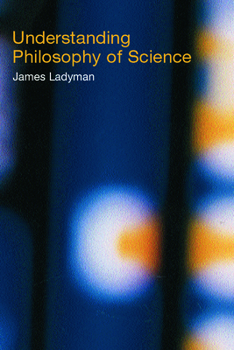Understanding Philosophy of Science
Select Format
Select Condition 
Book Overview
Few can imagine a world without telephones or televisions; many depend on computers and the Internet as part of daily life. Without scientific theory, these developments would not have been possible.
Format:Paperback
Language:English
ISBN:0415221579
ISBN13:9780415221573
Release Date:December 2001
Publisher:Routledge
Length:304 Pages
Weight:1.05 lbs.
Dimensions:0.7" x 6.4" x 9.1"
Customer Reviews
5 ratings
Realism vs. Antirealism
Published by Thriftbooks.com User , 15 years ago
James Ladyman's book is an excellent introduction to philosophy of science, though at times (especially in the latter part of the book) it becomes too sophisticated for a lower division course. Still, Ladyman covers the basics and then some using a clear style that engages the reader, bringing her gradually closer to some deep questions about the nature of science. The book starts with the standard topics of induction (and the corresponding problem pointed out by David Hume), moving to Popper's falsificationism, originally proposed as a solution to the problem of justification of inductive inference. After having explained why falsificationism in turn didn't work very well, Ladyman proceeds to Kuhn and the idea of paradigm shifts in the history of science. The difficult part comes in the second section, which is entirely devoted to the still ongoing debate between realists and antirealists in science. The reader is slowly but surely walked through increasingly complex rebuttals and counter-rebuttals articulated by major players in this high-level intellectual dispute, encountering fundamental concepts in modern philosophy of science throughout the ride. We learn about the underdetermination of theories by data, inference to the best explanation, constructive empiricism, the Duhem-Quine thesis and theories of explanation. The reader never gets to a final answer, which of course is not the point, but with a bit of effort it should be possible to follow Ladyman all the way to the end. The last two short sections, on idealisation and structural realism, are a bit too short to be effective; they should be either cut out or expanded in future editions. Still, I'm planning to use this book next semester in a 300-level class on philosophy of science, and I'm looking forward to the puzzled reactions of my students when they'll begin to appreciate how little we understand about how science works.
a component of a system of philosophy...
Published by Thriftbooks.com User , 17 years ago
This book is unique among textbooks about the philosophy of science. It sets the stage for more serious investigations. I have read many books on the philosophy of science, and this is the only one that opens outwards onto a carefully crafted and cutting-edge metaphysics of science. The author is an authentic advocate of the ideals which can be realized by means of coordinated efforts by individuals dedicated to objective methods. He demonstrates his credentials as a thinker and as a logician, as well as as a concerned human being. He cares very much about the future of our species. He shows how we can make our way into a future worth having. Ladyman is relatively young (born 1969) and quickly dismisses vast regions of irrelevant philosophy which have been cherished by generations of "old school" philosophers. This could explain some of the negative reactions the book is bound to provoke. Revolutions in understanding are like that. I believe sincerely that this author is forging a new pathway for philosophy. And there is no better place to start understanding the scope of the current revolution than right here with this book.
excellent introduction
Published by Thriftbooks.com User , 17 years ago
This is an introductory book, and as to be evaluated as such. Thus it is nonsense to say "Don't read this; read Popper, Duhem, etc. instead". And as an introduction to the philosophy of science this book is great, because it does what it is supposed to do: it covers most of the main issues, and it discusses the main theories in a very clear and structured way.
An excellent introduction
Published by Thriftbooks.com User , 20 years ago
This is a more than adequate introduction to the subject, clearly written, sensibly structured and highly enjoyable. Philosophers frequently underestimate the degree to which the subject can be daunting even to the bright and enthusiastic beginner, and any introductory text must find a balance between thoroughness and accessibility. Ladyman's book does just that.
An engaging, thought-provoking read.
Published by Thriftbooks.com User , 22 years ago
This is great introduction to the key issues that bother philosophers of science today - Ladyman has managed to really bring the subject alive.





